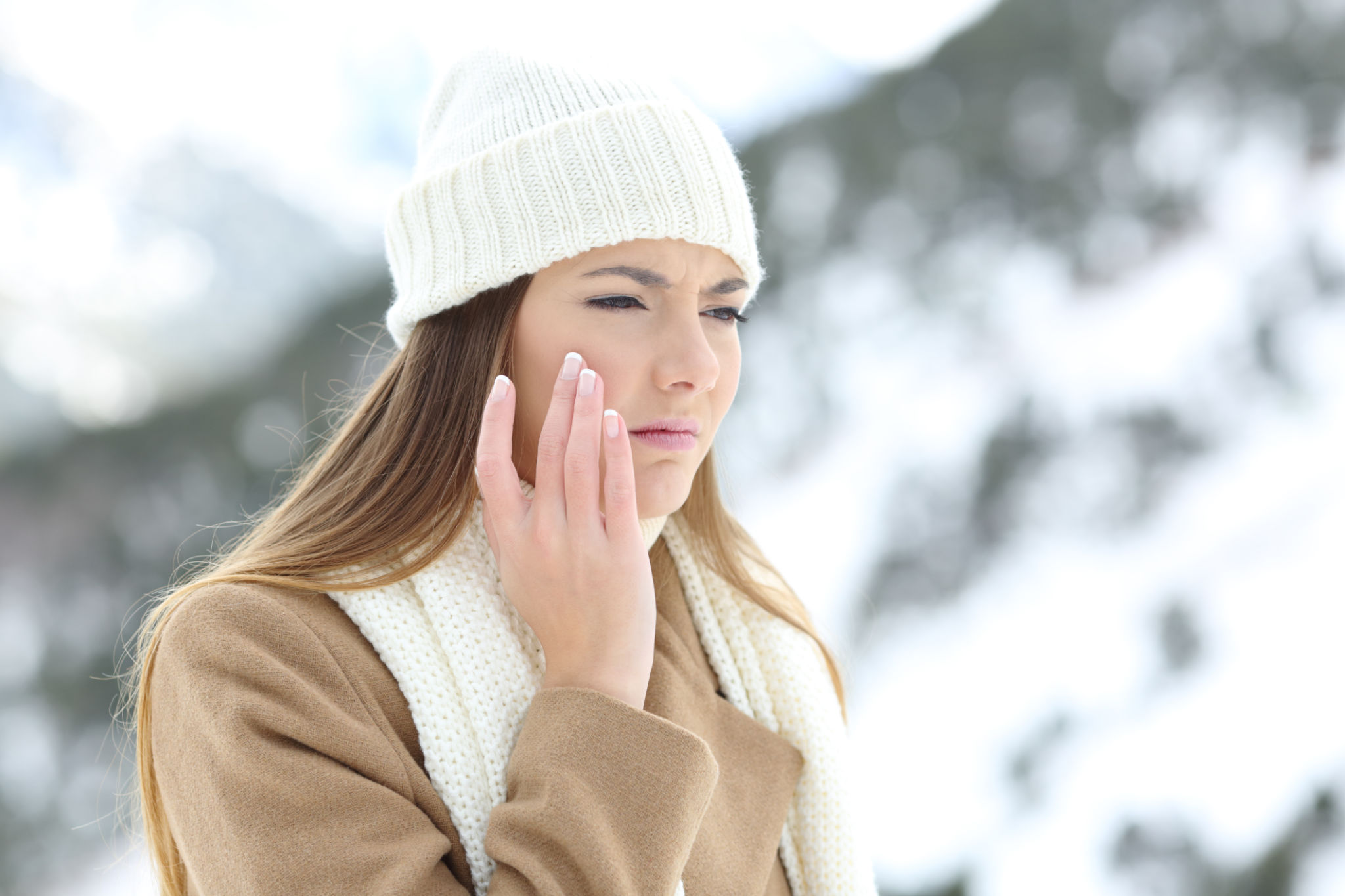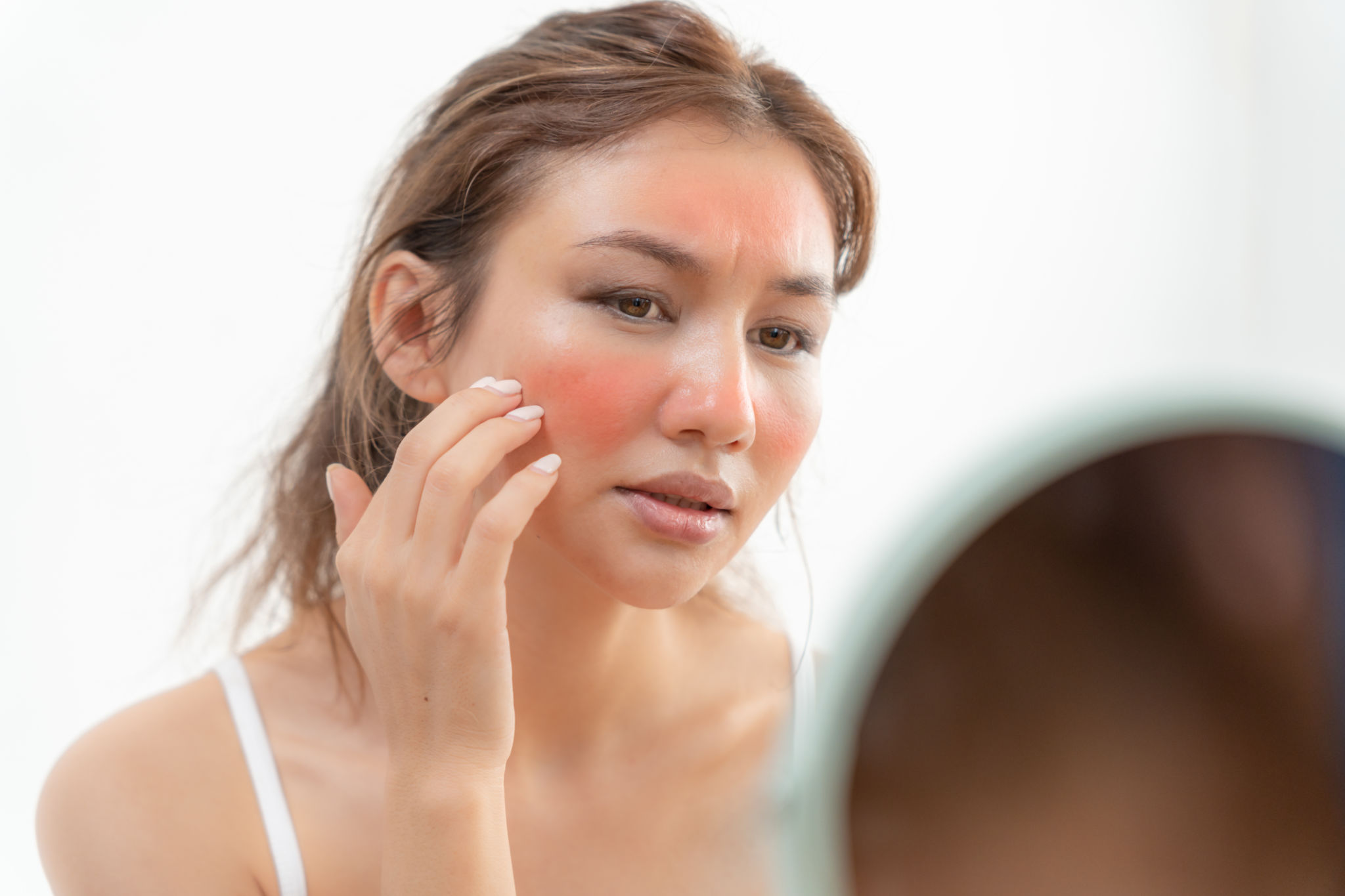Skincare Basics: Understanding Your Skin Type | Expert Tips
With the vast range of products available today, skincare can be overwhelming, but the first step to achieving healthy, glowing skin is understanding your skin type. By identifying your skin's unique characteristics, you can tailor your skincare routine to meet its specific needs and achieve the best results. In this comprehensive guide, we'll explore the five main skin types, how to determine yours, and expert product recommendations to address each skin type's needs.

Why Understanding Your Skin Type is Crucial
Choosing products without knowing your skin type can lead to using the right ingredients, which might irritate your skin, cause breakouts, or worsen existing issues. Tailoring your routine to your skin's unique needs will help keep your skin balanced, hydrated, and healthy.
The 5 Main Skin Types
There are five general skin types: normal, oily, dry, combination, and sensitive. Each skin type requires a different approach, and understanding your skin needs is the first step toward creating an effective routine. Let's break down the characteristics of each skin type and the best products to care for them.
Normal Skin
Characteristics:
Normal skin is balanced, with neither too much oil nor too little moisture. People with average skin experience few blemishes, and their skin tends to be smooth and even-toned.

Signs of Normal Skin:
- Tiny, barely visible pores
- No major skin concerns (such as acne or excessive dryness)
- Smooth texture and even complexion
Expert Tips for Normal Skin:
Maintaining balance is critical for normal skin. It's essential to keep it hydrated, protect it from UV damage, and avoid overloading it with unnecessary treatments.
Recommended Skincare Routine for Normal Skin:
- Cleanser: Use a gentle, non-stripping cleanser to maintain your skin's natural oils.
Product: Fresh Soy Face Cleanser —This gentle gel cleanser is perfect for normal skin. It removes dirt and makeup without stripping the skin of moisture.
- Toner: Opt for a hydrating toner that refreshes the skin without disrupting its natural balance.
Product: Kiehl's Calendula Herbal Extract Alcohol-Free Toner – This soothing toner hydrates while maintaining the skin's pH.
- Moisturizer: Choose a lightweight moisturizer to hydrate your skin throughout the day.
Product: Embryolisse Lait-Crème Concentré – A cult favorite, this multipurpose cream hydrates without feeling heavy.
- Sunscreen: Use a broad-spectrum SPF to protect your skin from UV damage.
Product: Supergoop! Unseen Sunscreen SPF 40 – A lightweight, invisible sunscreen that offers excellent protection without clogging pores.
Oily Skin
Characteristics:
Oily skin produces excess sebum, resulting in shiny skin, enlarged pores, and a greater likelihood of breakouts and blackheads. Balancing oil production and keeping pores clear is the key to managing oily skin.

Signs of Oily Skin:
- Visible, enlarged pores (especially in the T-zone)
- Shiny appearance throughout the day
- Frequent breakouts, especially on the forehead, nose, and chin
Expert Tips for Oily Skin:
For oily skin, focus on controlling oil production without over-drying the skin, which can lead to even more oil production. Choose lightweight, oil-free products.
Recommended Skincare Routine for Oily Skin:
- Cleanser: Opt for a foaming or gel cleanser that removes excess oil and impurities.
Product: Neutrogena Oil-Free Acne Wash —This cleanser contains salicylic acid, which helps clear up breakouts while controlling oil.
- Toner: Use a toner with witch hazel or salicylic acid to reduce oil and minimize pores.
Product: The Ordinary Glycolic Acid 7% Toning Solution – A powerful exfoliating toner that helps regulate oil production and smooth skin texture.
- Moisturizer: Even oily skin needs hydration. Choose a lightweight, oil-free moisturizer that won't clog pores.
Product: La Roche-Posay Effaclar Mat Moisturizer – This oil-free moisturizer controls shine while hydrating the skin.
- Sunscreen: Use a mattifying sunscreen to avoid excess shine throughout the day.
Product: EltaMD UV Clear Broad-Spectrum SPF 46 – This lightweight sunscreen is perfect for oily skin and helps prevent breakouts.
Dry Skin
Characteristics:
Dry skin produces less sebum, making it more prone to flakiness, tightness, and fine lines. It can feel rough, especially in harsh weather conditions. The goal for dry skin is to lock in moisture and repair the skin barrier.

Signs of Dry Skin:
- Flaky or rough patches
- Tight or uncomfortable feeling after washing
- Dull, dehydrated complexion
- Visible fine lines, especially around the eyes and mouth
Expert Tips for Dry Skin:
Hydration is key. To prevent further moisture loss, focus on products that add moisture to your skin and repair the skin's protective barrier.
Recommended Skincare Routine for Dry Skin:
- Cleanser: Use a creamy, hydrating cleanser that won't strip your skin of essential oils.
Product: CeraVe Hydrating Cleanser – With ceramides and hyaluronic acid, this cleanser locks in moisture while gently cleaning the skin.
- Serum: Incorporate a hydrating serum with hyaluronic acid to draw moisture into the skin.
Product: Vichy Minéral 89 Hyaluronic Acid Hydration Booster – This lightweight serum replenishes moisture and strengthens the skin barrier.
- Moisturizer: Choose a rich, emollient moisturizer that provides long-lasting hydration.
Product: Weleda Skin Food – A nourishing, rich cream that deeply hydrates and soothes dry skin.
- Night Treatment: To help repair dry skin at night, opt for a more decadent cream or overnight mask.
Product: Laneige Water Sleeping Mask – A profoundly hydrating overnight mask that replenishes moisture as you sleep.
Combination Skin
Characteristics:
Combination skin is characterized by an oily T-zone (forehead, nose, and chin) and dry or normal cheeks. This type of skin requires balancing the control of oil and maintaining moisture in drier areas.

Signs of Combination Skin:
- Oily, shiny T-zone
- Dry or normal skin on the cheeks
- Occasional breakouts in oily areas
Expert Tips for Combination Skin:
Use targeted treatments for different areas of your face. Mattifying products should be used in the T-zone, while more hydrating products should be applied to the cheeks.
Recommended Skincare Routine for Combination Skin:
- Cleanser: Choose a gentle, balancing cleanser to address oil and dryness.
Product: Youth to the People Superfood Antioxidant Cleanser—This gentle cleanser helps balance oil while keeping the skin hydrated.
- Toner: Use a toner that helps control oil without stripping moisture from the skin.
Product: Paula's Choice Pore-Reducing Toner – With antioxidants and niacinamide, this toner minimizes oil production while hydrating dry areas.
- Moisturizer: Opt for a lightweight, gel-based moisturizer that provides hydration without clogging pores.
Product: Belif The True Cream Aqua Bomb—This oil-free gel cream hydrates without leaving a greasy residue, ideal for combination skin.
- Sunscreen: Choose a non-greasy, lightweight sunscreen to protect your skin without adding extra shine.
Product: Neutrogena Hydro Boost Water Gel Lotion SPF 50—This hydrating sunscreen has a non-greasy finish and is perfect for combination skin.
Sensitive Skin
Characteristics:
Sensitive skin is easily irritated and often reacts to products, environmental factors, or allergens. It can become red, itchy, or inflamed after exposure to harsh ingredients or treatments. The key to sensitive skin care is soothing, gentle products that won't trigger irritation.

Signs of Sensitive Skin:
- Redness or blotchiness
- Stinging or burning after using certain products
- Thin, fragile skin prone to irritation
- Breakouts or rashes after using new products
Expert Tips for Sensitive Skin:
Choose fragrance-free, hypoallergenic products with calming ingredients. Focus on strengthening your skin's barrier and reducing inflammation.
Recommended Skincare Routine for Sensitive Skin:
- Cleanser: Opt for a soothing, gentle cleanser that won't disrupt your skin's barrier.
Product: Avène Extremely Gentle Cleanser – This soothing, no-rinse cleanser is perfect for sensitive skin.
- Serum: Incorporate calming ingredients like aloe vera, chamomile, or green tea to reduce redness and irritation.
Product: Dr. Jart+ Cicapair Tiger Grass Serum – Formulated with centella asiatica (tiger grass), this serum calms and strengthens sensitive skin.
Moisturizer: Use a lightweight but nourishing moisturizer with soothing ingredients.
Product: First Aid Beauty Ultra Repair Cream – With colloidal oatmeal and shea butter, this rich cream helps soothe and protect sensitive skin.
- Sunscreen: Choose a mineral-based sunscreen to reduce the risk of irritation from chemical sunscreens.
Product: EltaMD UV Clear Broad-Spectrum SPF 46 – A mineral sunscreen that protects while calming sensitive skin.
How to Understand Your Skin Type
Here are two easy methods to identify your skin type:
- The Bare Face Test: Cleanse your face with a gentle cleanser and let it rest for an hour without applying any products. If your skin feels tight, you likely have dry skin. You have combination skin if it looks shiny in some areas but dry in others. If your skin looks shiny all over, you probably have oily skin.

- The Blotting Paper Test: Gently press blotting paper on different areas of your face. You have oily skin if it picks up a lot of oil from all regions. You have combination skin if it only picks up oil from your T-zone. If there's minimal oil, you likely have dry or normal skin.
Conclusion
Understanding your skin type is the foundation of an effective skincare routine. By recognizing whether your skin is normal, oily, dry, combination, or sensitive, you can tailor your products and routines to achieve healthy, balanced skin. Remember that skincare is not one-size-fits-all—pay attention to how your skin responds, and adjust your routine for optimal results.
*Some of the links in this article are affiliate links, including links to products on Amazon. This means that if you click on a link and make a purchase, Beyond True Beauty may earn a small commission at no extra cost to you. As an Amazon Associate, we earn from qualifying purchases. We only recommend products and services that align with our values and that we believe will provide value to our readers. Thank you for supporting Beyond True Beauty by using our links.
